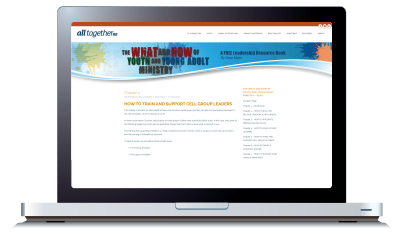
This webpage has a few gifts for you:
- The first resource relates to mobilising outreach through church small groups.
- The second is a three-part equipping, with a specific view to making ‘disciple-making disciples’ through church small groups
- The third is links to other resources.
Context
The early church met in the synagogues, and from house to house. This is to say, Christianity started as a ‘house church’ movement. Later at the time of Constantine it became the state-sanctioned religion. From then onwards the larger gatherings became the focus — like they still are in the West today. What is of note is that the Church thrived when meeting only in small groups – while it did not thrive well at all when meeting only in large groups. Large and small groups both have value – but we are unwise to overlook the significance of small groups.
The mission of the Church (to make disciples of non-disciples) is not only the mission of the local congregationl it is also the mission of every church small group! In addition, God always intended that Christians connect relationally for encouragement. We call it ‘fellowship’, and it’s key context is the small groups because the 50 or more ‘one anothers’ of the New Testament could not be applied in any other context!
- God’s vision for our churches had our church small groups near the centre — not as an extra.
- The inclusion of our mission as a focus in our church small groups is a perspective that has often been overlooked. Let’s change that – and simply!
Gift #1: Outreaching Culture — for small group leaders
Gift #2: Intentional disciple-making through small groups
Introductory message on the important of church small groups
A stirring 40 minute message on the importance of church small groups if the Church is to more fully become what God intended it to be in this world.
In this message Dave traverses history and Scripture to present a compelling challenge, principally suggesting that the goal is not that we have churches with small groups, but instead become churches of small groups.
The philosophy / thought behind this training
30 min small group leaders training (1 of 3) — with Dave
The above audio is an introduction to the importance of small groups.
The video here is the first of three — summarising 8 key areas of training, to enable small group leaders to deliver measurable results. The goal is disciples who make disciples.
Download student notes for all 8 sessions (3 half hour videos) here.
All within 30 minutes — this first video concisely articulates:
- Three key goal areas — and how to achieve them through simple ‘fringe’ habits (because habits are what builds culture);
- Programme flow and priorities;
- Discussion leading tips — Part I.
30 min small group leaders training (2 of 3) — with Dave
The text next to the first video explains what is being gifted here.
Download student notes for all 8 sessions (3 half hour videos) here.
This second of three videos covers:
- The essentiality of small groups to the function of the Church;
- Small group life-cycle;
- The essentiality of annual goals to life-changing small groups (including outreach goals);
30 min small group leaders training (3 of 3) — with Dave
The text next to the first video explains what is being gifted here.
Download student notes for all 8 sessions (3 half hour videos) here.
For this final session — also download the sample ‘calendar’ (as a editable Word doc) here.
This third of three videos covers:
- Discussion skills — Part II (group management)
- Planning (putting it all to practice — to deliver measurable results).
A strategically significant resource:
A small groups first discussion in the year
While the formatting needs work, this 1 page discussion guide + 1 page goals guide is what we’d suggest all church small groups consider doing. The reasons sit within the discussion itself.
- We don’t achieve goals we don’t set.
- We don’t create healthy habits without first establishing the goals the habits might serve.
- Principally: Leaders won’t be able to help their members grow if there isn’t the intentionality to ask what areas they might like to grow in – and then to somehow record that, so it can be acted upon!
This is about a new paradigm of thinking – called INTENTIONAL disciple-making – and if the habits are embraced, it yields results!
>> The PDF discussion guide is here.
Gift #3: Some other free resources
(A) BOOKS:
- Download just Chapters 6 and 7 of ‘Elephant in the Room’ by Dave Mann here – or purchase the book via our shop – or view the entire book as a PDF via AllTogether.co.nz/ebooks.
- Read chapters 12 and 13 of ‘Because we care’ by Dave Mann. Available for purchase in print here – or view the entire book as a PDF via AllTogether.co.nz/ebooks.
- Read ‘Generations for Life’ by Tony Collis (half of this book is about small group ministry — tony@shininglights.co.nz)

(B) ONLINE RESOURCES FOR YOUR USE WITH YOUR LEADERS:
You will find a chapter by Dave Mann on how to lead a ‘cell’ ministry (Chapter 5 of ‘The What and How of Youth and Young Adult Ministry — Singapore version’) here.
Please freely discuss your small group vision and strategies with Dave Mann and Tony Collis. Both have had significant experience in bringing leadership to small group ministries / small group movements.



